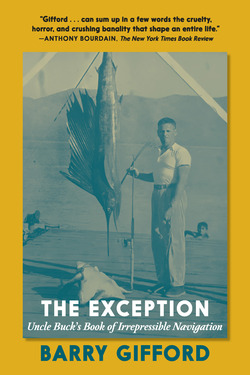Do the Blind Dream? shows Barry Gifford at the height of his powers, navigating with ease the new, more fragmented imaginative landscape of morning-after America. Gifford seems to have anticipated themes that suddenly are recognizable everywhere: the fragility of identity; the power of coincidence; the illusion of a secure tomorrow.
In contrast to his often nightmarish, satirical, groundbreaking novels of the 1990s—Wild at Heart, Perdita Durango, and Night People among them—Do the Blind Dream? continues in the tender and deeply introspective vein revealed in two recent works: Gifford’s memoir The Phantom Father (named a New York Times Notable Book), and the award-winning novella Wyoming. From the intimate, stylistically daring examination of the darkest secrets in the history of an Italian family, to the terrible but often beautiful fears and discoveries of childhood, to the sardonic, desperate confusion of adult life, Do the Blind Dream? reveals an exceptionally versatile, highly tuned sensibility.
Introducing Three Cheers: a new feature on the Seven Stories Blog. In this feature, Seven Stories authors dish on three books that helped to mold them over the course of their careers. Check out Barry Gifford's choices below!
by Barry Gifford
Grande Sertao: Veredas (Translated into English as The Devil to Pay in the Backlands by Harriet de Onis). Certainly the greatest of all Portuguese language novels, a truly transformative novel; a unique, surprising narrative that rivals Don Quixote for creativity and meaning. Written by Joao Guimaraes Rosa, Brazilian professor and diplomat.
The Adventures & Misadventures of Maqroll the Gaviereo (Translated from Spanish by Edith Grossman) by Alvaro Mutis, a Colombian raised in Belgium and Colombia and Mexico, best friend of Gabriel Garcia Marquez, who called Mutis the finer writer. Marquez was correct: Mutis’s Maqroll novellas are the finest kind of literary adventures. A vastly underrated if not mostly unknown (in the English-speaking and -reading world) master of prose and poetry.
The Collected Novels of Jean Rhys Another mostly undervalued (and misinterpreted) writer. Her novels After Leaving Mr. Mackenzie and Good Morning, Midnight (quote from Emily Dickinson, I believe) are especially good. She did not waste words: taught me how to be concise and direct without sacrificing intent and meaning. Hated being taken up in 1960s and ‘70s by feminists—resented is better word. Once a mistress of Ford Madox Ford’s, she picked up on what the big guns of the ‘20s and ‘30s had to say (Hemingway, Conrad, Pound, et al) and in my opinion outdid them all—except maybe Conrad.



























